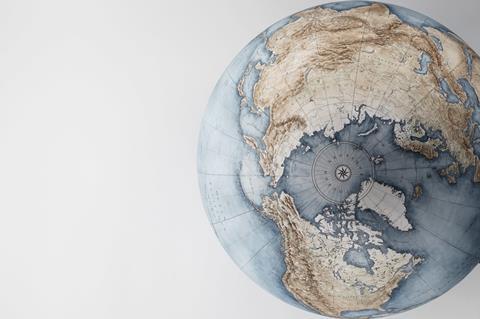Veronica Zundel asserts that it is time to take God’s mandate to look after the world and all that it is in seriously

Should Christians love the world? Many would say the answer is clear, at least according to 1 John 2:15: “Do not love the world or anything in the world.” If that’s your entire take on the matter, why worry about climate chaos and environmental degradation? It’s all going to be destroyed anyway, as Peter tells us: “the heavens will pass away with a great noise, and the elements will melt with fervent heat; both the earth and the works that are in it will be burned up” (2 Peter 3:10, NKJV).
But, as Luke might say, woe to those who build their theology on single verses taken out of context and without knowing any of the original Greek. My New Testament Greek is very limited but I have the advantage of knowing at least the alphabet and owning an interlinear Greek-English Revised Standard Version of the Bible. Consequently I know that the word ‘kosmos’ used for ‘world’ in the first verse above does not simply mean the physical earth or even the physical universe as far as the biblical writers knew it. If they meant simply ‘the earth’ they would use the word ‘gē’ (from which we get ‘geology’). ‘Kosmos’ means something more like ‘the world as it is presently arranged’, what we might call ‘the system’ or what the original hippies called ‘the man’, to whom we were exhorted to ‘stick it’ (whatever ‘it’ might be).
To love the world, in this context, means to be in league with, to benefit from, the hierarchies and the inequalities of the present social and political order – the very thing that is currently destroying the planet. Or as 1 John 2:16 (NRSV) puts it: “the desire of the flesh, the desire of the eyes, the pride in riches” (“the desire of the flesh” here does not mean just inappropriate sexual impulses, but the compulsion human beings have to own things and even people).
Our God-given responsibility towards nature
I apologise for having gone all theological on you this month – I’ve been writing Bible notes and two sermons, so I’m feeling a bit biblical. I feel I need to spell out a bit of background to what I really want to say. My late mother was very much a city person (she and my father ‘retired’ from Coventry to London!) but she had a great love for the countryside, especially the Austrian countryside, which she really only properly discovered in her adulthood. I have inherited this from her, but in much the same way: the city is a place to live in, the country a place to be visited. In my youth when I lived in a Christian community outside a tiny Leicestershire village I felt the need to hitchhike to the nearest town once a week just to see shops – and it was only Market Harborough.
Woe to those who build their theology on single verses taken out of context
Some of us may be city kids, but still, though I’m no patriot, when I see a particular landscape or even a picture of it, I want to exclaim “Oh England, my England,” All humans need nature – we are part of nature, and God has made us responsible for it. I don’t know any Old Testament Hebrew, but I suspect it might be better to translate Genesis 1:28 as: “Be fruitful and multiply, and fill the earth and tame it; and have responsibility for the fish of the sea and over the birds of the air and over every living thing that moves upon the earth.” ‘Subdue’ and ‘have dominion’, as most of our translations say, certainly don’t mean ‘exploit and plunder’. Environmentalists are wrong to blame Christian theology for the over-exploitation of the earth – capitalism might be a more likely culprit, since it encourages us to think only of the profits and not of the effects of our industries.
I love those videos people sometimes post on Facebook, where a wild creature who needs help – perhaps a turtle or dolphin that has got tangled up in fishing net – seeks out humans to get it out of its predicament, and then appears to come back to thank the person who helped them. (The recent reports of orcas attacking fishing boats are a little more worrying – but really, who can blame them?). Some of these videos of human/animal interaction may be faked, but they speak to something deep in our psyche, something prelapsarian (look it up) that tells us we were meant to live in harmony with all creatures, and all creatures in harmony with each other.
Let’s remember that in the most modern translations, 2 Peter 10 says not that the earth will be burned up, but that it will be ‘disclosed’ or ‘revealed’; and that Revelation promises us a new heaven and a new earth. God has a future for this planet (and, I surmise, all the others we are discovering). Our letting it go to rack and ruin can hardly be part of that plan.


































No comments yet